Gold of Our Fathers - [29]
Interesting, Dawson thought. Akrofi was laying the blame for the river pollution at the feet of the multinational company, AngloGold Ashanti, rather than the small-scale miners. “I see. That’s a good point.” Now the tough question. “Please, Nana, what do you say about the farms that have been destroyed by the excavators? Maybe it’s true that the young people get work on the mining sites, but at the same time, farmers who have spent all their lives planting crops have lost their livelihood. Is that not correct?”
Akrofi shook his head vigorously. “Please, Mr. Chief Inspector. First of all, don’t believe everything that you hear about those excavated areas. It is not all farmland. Some of it isn’t suitable for cocoa at all, because the soil is not good quality. And then, those farmers complaining are the same fools who sold their land to the Chinese. They are not supposed to do that without my permission, but still, some of them do. Then, when the money they took has run out, they come crying to me saying, ‘Please, Nana, what should I do, Nana? The China people have destroyed my land.’You are rather the stupid one who allowed yourself to fall to the temptation of the money they offered you.”
“In other words, Nana,” Dawson said cautiously, getting close to the edge, “if a farmer did not want his land used for mining and the Chinese came to ask you permission to take that land, you would not allow it.”
“Yes!” he answered fiercely. “Of course I would not allow it.”
In his peripheral vision, Dawson saw Obeng averting his gaze, and he sensed that the sergeant knew or suspected that the chief’s assertion wasn’t altogether true.
“Look,” the chief continued, “the only real problem with the excavators is that the Chinamen should backfill the pits once they have finished with the site.”
“Why don’t they?” Dawson asked.
“Because it costs money,” Akrofi said simply. “It takes a lot of fuel and time. I was listening to the radio the other day and heard the Minister of Agriculture saying that they will come in and cover up all the abandoned pits and request the Center for Scientific and Industrial Research to plant and restore all these areas.”
“Do you think that will happen?” Dawson asked.
The chief made a rude noise with his mouth. “It will never happen. These ministers are all liars. Spending the country’s money on their Benzes and girlfriends.”
Much truth to that, unfortunately.
“The Chinamen have built us roads that go far into the bush,” Akrofi said. “If you wait for the government to do such a thing, you will wait until your hair turns gray. The Chinese even built a small school in one of the villages not far from here. So yes, they are good people. They have passion for the villagers. If I have a problem, I just go to them and they help me. The Chinese have been giving us money every two weeks to maintain the boreholes.”
That surprised Dawson. He would not have expected that kind of generosity. Which made him think of something. “What about Bao Liu? Did he contribute to the boreholes?”
“Not as such,” Akrofi said, “but I understand he planned to do so.”
Could there have been any conflict in that area? Perhaps Bao had withheld funds from the chief, or had refused to bribe him for something? But as a motive for murder, it still seemed unlikely. You know where your bread is buttered, even if the butter is a little long in coming. Still, what was the chief withholding about conflict between Bao and the local farmers? Was he trying to gloss over the true situation, or was he shielding someone? Much as Dawson wanted to know that, confronting Nana Akrofi about it now would destroy any chances of questioning the chief in the future.
Dawson looked at Obeng, conveying that he had no more questions for the chief. Obeng nodded. He had none either. He and Dawson began the process of thanking the chief and wishing him the very best. He rose and again shook their hands, right to left.
Akrofi had an afterthought as Dawson and Obeng were about to leave. “When you go to look for that boy, Kudzo Gablah,” he said, “just be ready. He will be afraid of you and he might try to escape before you find him.”
CHAPTER THIRTEEN
Getting to Aniamoa meant traveling thirty miles north-northwest from Dunkwa deep into the bush along unpaved red laterite. If Kudzo Gablah had indeed fled to Aniamoa, he obviously wanted to be as far away from Dunkwa as possible.
Dawson texted Christine, sorry love, can’t get to the house today-too much going on. will try tmrw. luv u
She replied, ok, lu2
Whenever a rare SUV or truck appeared in the opposite direction, both vehicles squeezed over onto the verge to allow each other to pass. The dust, potholes and bumps made Dawson think wistfully of owning an SUV just for this purpose.
Obeng told Kofi where to stop and wait until their return. They would be walking the rest of the way because the road trailed off and the taxi would not be able to handle the terrain.
Like Dunkwa, Aniamoa had a number of small-scale mining sites dotted around the town. Obeng had a pretty good idea which one of them Kudzo was likely to have sought out as his new location.
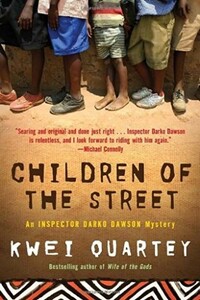
"Searing and original and done just right… Inspector Darko Dawson is relentless, and I look forward to riding with him again." – Michael ConnellyIn the slums of Accra, Ghana's fast-moving, cosmopolitan capital, teenagers are turning up dead. Inspector Darko Dawson has seen many crimes, but this latest string of murders – in which all the young victims bear a chilling signature – is the most unsettling of his career. Are these heinous acts a form of ritual killing or the work of a lone, cold-blooded monster? With time running out, Dawson embarks on a harrowing journey through the city's underbelly and confronts the brutal world of the urban poor, where street children are forced to fight for their very survival – and a cunning killer seems just out of reach.
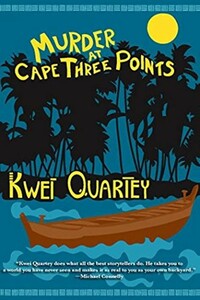
At Cape Three Points on the beautiful Ghanaian coast, a canoe washes up at an oil rig site. The two bodies in the canoe – who turn out to be a prominent, wealthy, middle-aged married couple – have obviously been murdered; the way Mr. Smith-Aidoo has been gruesomely decapitated suggests the killer was trying to send a specific message – but what, and to whom, is a mystery.The Smith-Aidoos, pillars in their community, are mourned by everyone, but especially by their niece Sapphire, a successful pediatric surgeon in Ghana's capital, Accra.
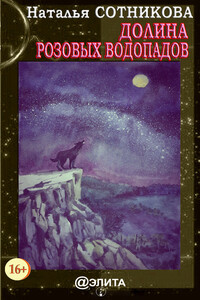
Однажды в руки безработной журналистки Екатерины Голицыной и её друга Николая Артюхова попадает странная флешка с видеозаписью. Известный американский писатель Майкл Доусон просит помочь ему в поисках исчезнувшей жены, Лии, родители которой погибли от рук китайской секты «Чёрное Братство». Следы Лии ведут в Россию.Старая китайская легенда неожиданно оживает в наши дни. Маленький научный городок Техногорск становится центром борьбы добра и зла. Оборотни, карлики, московский вор в законе, всемогущий мэр города и сам Магистр «Черного Братства».Кто может противостоять им? К тому же Николай исчезает самым странным образом.
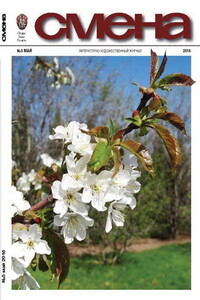
Ирину Александрову в последнее время преследовали одни несчастья: смерть дяди, гибель тети, странные голоса по ночам, толчок в спину под колеса поезда — все эти события были связаны между собой. Но как — ответа не было. А ощущение чего-то страшного, неотвратимого, что должно произойти, нарастало.
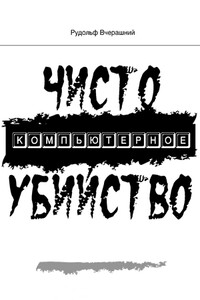
Заместитель командира воинской части в/ч № 755605 — собственно воинской частью был научно-исследовательский институт военно-морского ведомства — капитан первого ранга Гаврилов был обнаружен мертвым в своем рабочем кабинете. Прибывшая опергруппа не обнаружили каких-либо следов, отпечатков и других зацепок. Дело было поручено следователю военной прокуратуры Паламарчуку Василию Аполлинарьевичу.
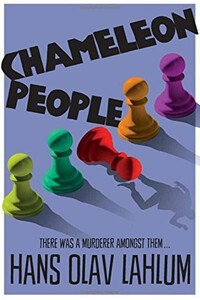
From the international bestselling author, Hans Olav Lahlum, comes Chameleon People, the fourth murder mystery in the K2 and Patricia series.1972. On a cold March morning the weekend peace is broken when a frantic young cyclist rings on Inspector Kolbjorn 'K2' Kristiansen's doorbell, desperate to speak to the detective.Compelled to help, K2 lets the boy inside, only to discover that he is being pursued by K2's colleagues in the Oslo police. A bloody knife is quickly found in the young man's pocket: a knife that matches the stab wounds of a politician murdered just a few streets away.The evidence seems clear-cut, and the arrest couldn't be easier.
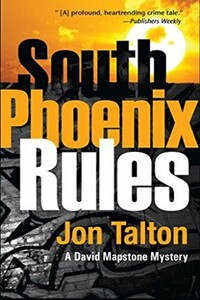
A handsome young New York professor comes to Phoenix to research his new book. But when he's brutally murdered, police connect him to one of the world's most deadly drug cartels. This shouldn't be a case for historian-turned-deputy David Mapstone – except the victim has been dating David's sister-in-law Robin and now she's a target, too. David's wife Lindsey is in Washington with an elite anti-cyber terror unit and she makes one demand of him: protect Robin.This won't be an easy job with the city police suspicious of Robin and trying to pressure her.
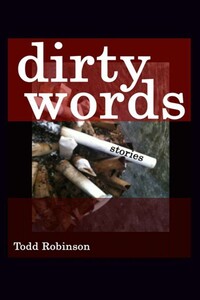
From the creator of the groundbreaking crime-fiction magazine THUGLIT comes…DIRTY WORDS.The first collection from award-winning short story writer, Todd Robinson.Featuring:SO LONG JOHNNIE SCUMBAG – selected for The Year's Best Writing 2003 by Writer's Digest.The Derringer Award nominated short, ROSES AT HIS FEET.THE LONG COUNT – selected as a Notable Story of the Year in Best American Mystery Stories 2005.PLUS eight more tales of in-your-face crime fiction.